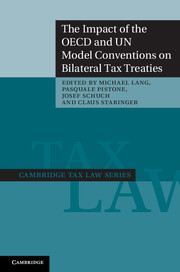Book contents
- Frontmatter
- Contents
- Contributors
- Preface
- Table of cases
- Table of statutes
- General report
- 1 Argentina
- 2 Australia
- 3 Austria
- 4 Belgium
- 5 Brazil
- 6 Canada
- 7 Chile
- 8 China
- 9 Colombia
- 10 Croatia
- 11 The Czech Republic
- 12 Estonia
- 13 Finland
- 14 France
- 15 Germany
- 16 Hong Kong
- 17 Hungary
- 18 India
- 19 Italy
- 20 Lebanon
- 21 Liechtenstein
- 22 The Netherlands
- 23 New Zealand
- 24 Norway
- 25 Peru
- 26 Poland
- 27 Portugal
- 28 Romania
- 29 The Russian Federation
- 30 Serbia
- 31 Slovakia
- 32 Slovenia
- 33 Spain
- 34 Sweden
- 35 Uganda
- 36 The UK
- 37 The USA
- Index
- References
16 - Hong Kong
Published online by Cambridge University Press: 05 November 2014
- Frontmatter
- Contents
- Contributors
- Preface
- Table of cases
- Table of statutes
- General report
- 1 Argentina
- 2 Australia
- 3 Austria
- 4 Belgium
- 5 Brazil
- 6 Canada
- 7 Chile
- 8 China
- 9 Colombia
- 10 Croatia
- 11 The Czech Republic
- 12 Estonia
- 13 Finland
- 14 France
- 15 Germany
- 16 Hong Kong
- 17 Hungary
- 18 India
- 19 Italy
- 20 Lebanon
- 21 Liechtenstein
- 22 The Netherlands
- 23 New Zealand
- 24 Norway
- 25 Peru
- 26 Poland
- 27 Portugal
- 28 Romania
- 29 The Russian Federation
- 30 Serbia
- 31 Slovakia
- 32 Slovenia
- 33 Spain
- 34 Sweden
- 35 Uganda
- 36 The UK
- 37 The USA
- Index
- References
Summary
The relevance of the OECD and UN Model Conventions and their Commentaries for the interpretation of Hong Kong tax treaties
Introduction
Hong Kong's treaty network is underdeveloped. As of January 2011, it has concluded comprehensive tax treaties with eighteen countries. Tax treaty negotiations are in progress with the Czech Republic, Denmark, Finland, India, Italy, Korea (Republic of Korea), Macau Special Administrative Region (Macau SAR), Malaysia, Mexico, Pakistan, Saudi Arabia, Spain and United Arab Emirates.
At present, there are mainly three tax treaty models in the world: the OECD Model, the UN Model and the US Model. These three Models have been regularly updated in the last few years since they were first issued. Hong Kong has made reference to these Models in concluding its tax treaties. The following sections will examine the impact of these Models, especially the OECD and UN Models on Hong Kong's treaties. The US Model is not the subject of this study but it is referred to where necessary.
The relevance of the Models and their respective Commentaries
Hong Kong’s tax treaties have been drafted on the basis of the OECD and UN Models, though in some (rare) cases the US Model is referred to. In the Inland Revenue Department (IRD)’s Departmental Interpretation and Practice Notes No. 44 (revised) (DIPN 44), the Commissioner of the Inland Revenue notes: ‘In the interpretation and application of the provisions of the Comprehensive Arrangement (between Hong Kong and China), both Sides will refer to the Vienna Convention on the Law of Treaties (1969), the Commentaries on the relevant Articles of the Model Tax Conventions of the OECD and the United Nations, as well as to their respective principles of interpretation of taxation law.’
- Type
- Chapter
- Information
- Publisher: Cambridge University PressPrint publication year: 2012

